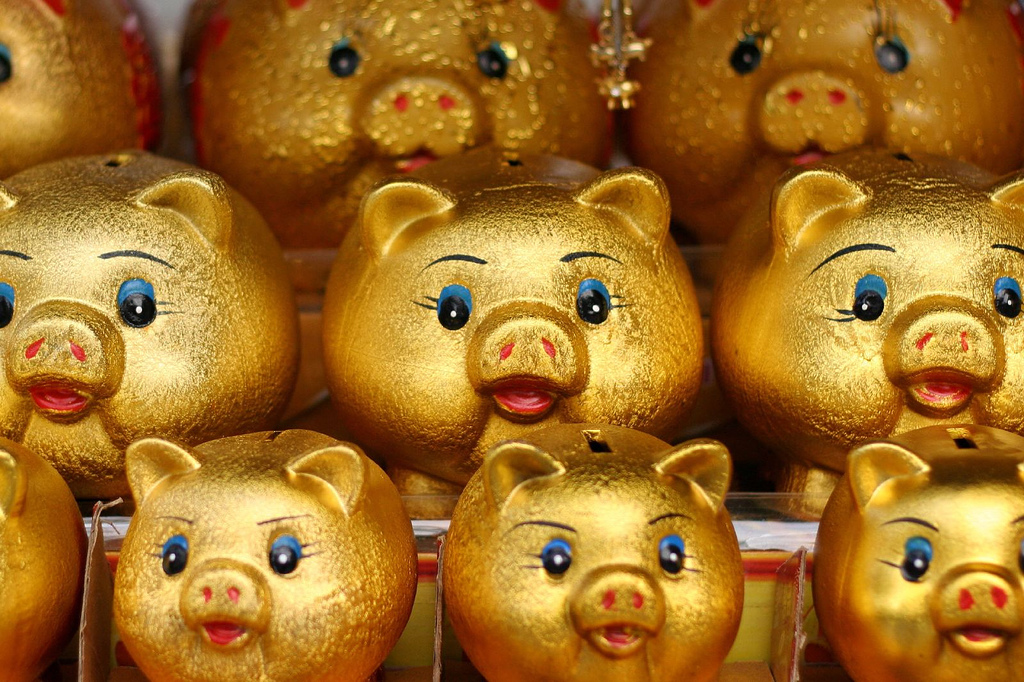
‘Quand la Chine s’éveillera, le monde tremblera’ (‘When China awakes, the world will tremble’), said Napoleon Bonaparte. It awoke some time ago and the rest of the world, especially the part that can no longer perhaps be referred to as the West, far from trembling, has sought to benefit from cheap goods and a burgeoning market over the last 30 years. The perception of what a strong China means changed with the advent of the crisis and Donald Trump in the White House. The US and even the European view of China has changed.
That said, when China falters, the world shudders, in economic if not in power terms. The current weakness of the Chinese economy is a concern for European economies, as it must be for the US. These days no single country could fill the hole that would be left in the world’s economy by reduced Chinese consumption. Apple is the most prominent company to have already experienced the negative effect of reduced sales in China. US consumers will also begin to feel the consequences if Chinese imports become more expensive.
The most recent Chinese GDP figures show growth of 6.6% for 2018. They are possibly exaggerated: Michael Pettis estimates that true growth could be half this, in a country where the GDP figure has become almost a political input rather than an economic output. Any other country would be singing from the rooftops to be reporting such growth. The problem for China is that it is the worst since 1990 –when the world depended much less on the Chinese economy– and it is expected to fall even more in 2019, the year of the pig. It reflects not only the effects of the trade and technology stand-off with the US, but also an internal change in the Chinese model and the consumption habits of its citizens. In 2018 the world’s largest market for vehicles bought 20% fewer cars than the year before –the first fall since 1991–, fewer mobile phones and fewer luxury goods; fewer houses too, and construction is stalling. The industrial cities seem to be the most affected. Salaries are stagnating or falling, while overtime is being cut.
It is not only China –with a lending sector in the spotlight– that is being weakened by this: the slow-down of the Asian giant is having a knock-on effect on imports from Europe, especially Germany and in particular its car-making industry (although many German makes are built in China). As Europe’s largest economy, Germany’s slow-down has an impact on the continent as a whole, apart from the general effect of Chinese developments on each individual country (Italy too is stalling, or worse). Although it denies that the world is on the threshold of recession, the IMF has already warned that the global economy is slowing, due in no small part to China and the trade war with the US. The Federal Reserve is being prudent. The Asian countries are also being hit. All this comes in the midst of rampant economic nationalism, which does nothing to aid coordination to regain the ground that has been lost in global trade.
It is not just that the Chinese economy is cooling: the prospect of the reforms needed to reactivate it seem to be receding. Although it sees the risks of the current situation, Xi Jinping’s administration is pushing for a change in the economic and political model, one that harnesses the technological revolution and is less reliant on export-driven growth, investments and importing critical technological components, and more focused on internal consumption of Chinese products. One of the problems, both for the internal reforms and for an agreement with the US, is that the current leadership –as became clear at the event marking the 40th anniversary of Deng Xiaoping’s unveiling of the reforms– believes that although state-owned enterprises can hamper economic growth, they are essential for preserving the status and control of the Communist Party; so says Nicholas Lardy, who argues that economic growth is ‘no longer the top priority’ for the leadership.
It is not clear what internal social and political repercussions this attitude will have in China, where people abhor chaos above all else, especially those that have had personal or family experiences of the Cultural Revolution. But it will have external repercussions: first because China is seeking to consolidate itself on the world stage; secondly because the rest of the world will also grow less; and thirdly because it may lead to a clash of values. Two systems for a single world?


